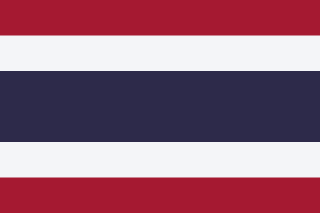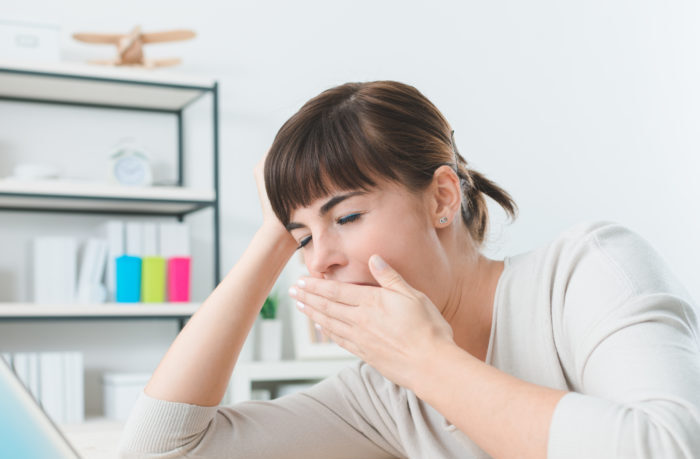We have arrived in the depths of winter and the nights have become very long. You can ask yourself the question, how is our sleep actually doing? Do you sleep well? And another question arises: Is restful sleep now a luxury item?
It is now widely known that many people sleep badly and too little. Sleep is vital to our well-being and health. Too little or poor sleep has devastating effects on our mental health. In the future, sleep will become a central pillar of health care.
Scientists have studied the sleep patterns of 10,000 people for this purpose. The result: The optimum sleep duration is between seven and eight hours, but it can also be more.
Over the course of a lifetime, the average person spends about a third of their life in bed. In reality, however, quality sleep has become a rarity for many. New technologies, digitalisation, mobile forms of work and flexible lifestyles are really depriving us of healthy sleep. In our society, those who can work longer and harder than others and get by with very little sleep are even admired for that.
But that is robbing your own body: “In people, sustained intervals of total sleep deprivation of 72 hours can lead to severe psychological and emotional symptoms,” says Dr. Ebrahim, medical director of the London Sleep Centre.
“Decreased total sleep over a prolonged period of time (insomnia) leads to an increase in reported symptoms of anxiety, depression, and over a prolonged period of time, decreased immune response, as well as an increase in cardiac and metabolic disorders such as diabetes and obesity.”
Poor sleep also reduces the ability to learn, remember and perform, and contributes to the development of cancer. A 2021 study by the RAND Corporation put the economic loss from poor sleep at $411 billion in the United States alone — that is 2.28 percent of gross domestic product.
“I can sleep when I’m dead,” said Rainer Werner Fassbinder, who was only 37 years old. During a medical examination in 1969, Fassbinder was told that he had a weak heart and should not exert himself too much. That didn’t stop him from working like a maniac and sleeping only three or four hours a day. He lived as excessively as he worked. Fassbinder was a workaholic, even if the word wasn’t known during his lifetime. That was definitely not exemplary. And yet he is still considered a genius.
Now you would think society would have learned something from stories like these. But the obsession with work only really picked up speed in the 90s and has continued to this day.
Late risers are superior to early risers
Whoever is successful, sleeps at most five hours a day? In reality, only one to three percent of the population belongs to the so-called sleepless elite, who can get by with very little sleep and still be productive.
For everyone else, it should be at least seven hours per night on average. There should even be contemporaries who can easily sleep ten hours a day. Albert Einstein is said to have slept twelve hours a day. And in fact you can find real late risers even among the richest people in the world.
The body regenerates itself during sleep. Wounds are supposed to heal better, cells grow faster. People who sleep deeply and late are said to sleep like a log, like a baby, or like a groundhog.
And to clear up another prejudice: As the saying goes, the early bird catches the worm, but this is also a misconception. According to the latest findings, night owls are supposed to be more intelligent – at least if you transfer the proverb to humans. Current studies indicate that late risers could be superior to early risers in terms of intelligence, creativity and success at work, according to the Company health insurance funds (BKK).
Sleep is the best medicine
During sleep, our brain stores, filters and discards information from waking hours. Sleep is not only the best medicine, but also has a positive effect on the entire body. Sleep is a miracle cure and is unfortunately all too often underestimated. In the most important of all sleep phases, the deep sleep phase, our body and mind regenerate. Physically and psychologically, deep sleep is therefore also the most restful phase of sleep.
We need to get away from the 20th century workaholic culture that sleeps only to perform the next day, says K-Hole founder Seth Monahan. K-HOLE is a trend forecasting group based in New York. It was founded by Greg Fong, Sean Monahan, Chris Sherron, Emily Segal and Dena Yago. “The insomniacs are the new smokers: haggard, pale, and responsible for unnecessary national healthcare costs,” notes Monahan.
A whole industry built around sleeping pills
The numbers speak for themselves: The American Sleep Association (ASA) reported that 35.3% of American adults sleep less than 7 hours in a 24-hour period, and that between 50 and 70 million adults suffer from insomnia. In all other nations, the situation is not likely to be any better.
“We want to appear busy, and one of the ways we express that is by announcing how little sleep we are getting,” sleep researcher and author Matthew Walker explained in an interview with vogue.de in “The Big Book of Sleep” in 2017.. “It’s a status symbol.” But instead of rethinking our obsession with productivity, we are now creating an entire industry around sleep aids – an industry estimated to be worth around €98.2 billion globally by 2025.
We should start making sleep a priority in our lives.
The luxury of a good night’s sleep
Sleep has become a commodity with its own market: a multi-billion dollar industry, writes the British Telegraph. The industry has long since discovered the business with sleep for itself. Items on offer include luxury mattresses, sleep apnea therapy devices, eye masks, aromatherapy oils, eiderdown covers and eiderdown pillows. Sleep Hackers are trying to tackle sleep with technology. They track sleep patterns with smart mattresses.
And the latest craze. The Neuroon smart sleep mask stimulates lucid dreams by triggering light flashes during the REM phase. It continues with sleep meditation and sleep tracking apps, pyjamas, bed linen and sheets made of organic silk, so “never sleepless again” thanks to stylish pyjamas?
And even sleeping pillows for the office and much more are available on the market today. In many homes, the bed has probably become the most expensive piece of furniture since the box spring trend swept across the globe from the USA a few years ago. The bed is said to have become the place of longing for the western world. Should all this be the luxury of a good night’s sleep?
Sleep becomes the key factor of success
In a guest commentary for “Welt-Online” Daniela Tenger and Karin Frick wrote: “Fighting fatigue: Sufficient rest is the basis of everything.” They write: “Sleeping a lot is becoming the new status symbol in the world of high achievers and managers.”
Long sleep becomes synonymous with ambition, creativity and success, the former cult of short sleep is exposed as macho behaviour. The commercial equivalent of such labels can be found in the luxury hotel industry, which entices its clientele with promises of exclusive sleeping experiences in tailor-made bed systems.”
Naps in between are also becoming very popular again. A short recovery time around the middle of the day is even said to be very healthy. It has also long been scientifically proven that a midday nap is an effective means of strengthening oneself efficiently for the second half of the day. So a pillow for the office actually makes sense.
Sleep well and stay healthy!
Sources:
Gottlieb Duttweiler Institute Study “The Future of Sleeping”
vogue.de, telegraph, welt












